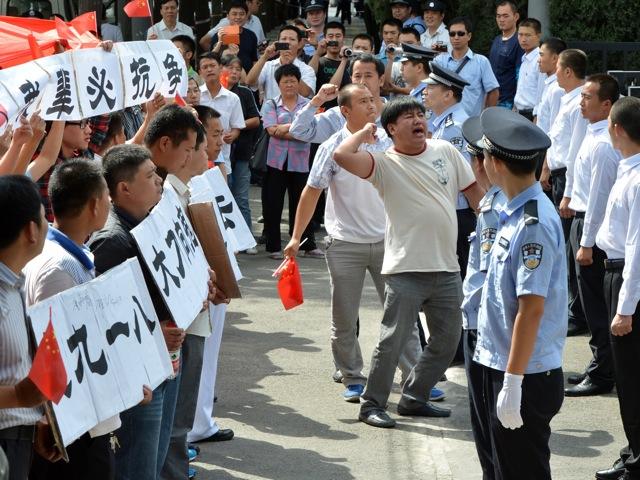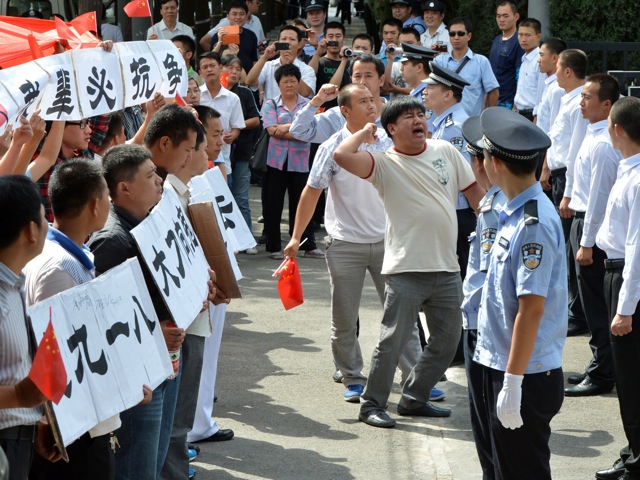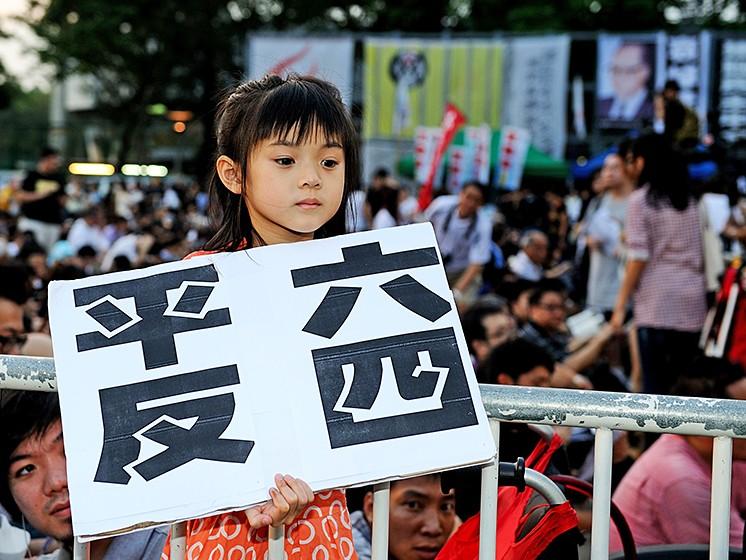Ideas have consequences. The Japanese man who recently had hot noodles thrown in his face while eating at a restaurant in Shanghai found that out the hard way.
So did a Honda, the Japanese-made car, that was set aflame by its owner on a street in Shanghai on Sept. 13, causing the street to close until firefighters arrived. The arson-protester hung anti-Japanese banners on a nearby fence to make sure his point was clear.
The acts of violence and destruction both took place within days of Japan announcing, on Sept. 11, the intention of purchasing several of the Senkaku Islands, which China claims to be part of its territory. They were purchased from private Japanese citizens.
Large crowds have been gathering outside the Japanese Embassy, too. Bus drivers have been told not to stop on that street in the daytime, according to Chinese state-run media.
“Boycott japanese goods” was the No. 2 most popular topic on Weibo, China’s version of Twitter, on Thursday. Many posts documented extreme acts of hatred.
One Weibo user Xiaohai1819 from Chongqing city uploaded a photo of a car wheel with screws missing on Thursday morning.
“Today some nationalist youths took the screws off the wheels of my Japanese car while I parked it in Shapangba,” he wrote. “If it happened to a less experienced driver, it might have cost a person’s life!”
His photo was reposted more than 27,000 times and attracted more than 5,000 comments. Many of the remarks reflected on and expressed disapproval of the extreme nationalism on display.
“In the end the cars are manufactured by Chinese factories. Such acts hurt the benefits of Chinese people,” commented user Siyingruan.
“When you boycott Japanese goods, tens of thousands Chinese people will end up on the streets. The unemployment rate in China will rise. People in Japan will suffer too. Imagine if Japanese also boycott Chinese goods, how many factories in rural towns and villages will close?” wrote a Weibo user who resides in Japan.
“What they have done is created disturbance, and is in no way related to the love of one’s country.”
Extremism in China has its roots. After the Communist Party seized power in China in 1949, the use of propaganda to sway public opinion on both domestic and international affairs became a core component of the regime’s rule
“In fact the Cultural Revolution never ended,” commented user inthekitchennng. “I'd rather look to a nation that respects democracy, human rights, and universal values.”
“Before China becomes a democratic state, I think it will be better if the Chinese Communist Party stops expanding its influence. The further its power extends, the more people will suffer,” commented economist He Qinglian on Twitter. “I think the problems with the Senkaku Islands are not as urgent as those of jobs, deficits, and human rights.”
The Epoch Times publishes in 35 countries and in 19 languages. Subscribe to our e-newsletter.





